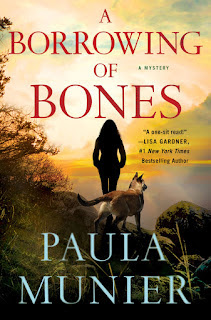Harriet Constable is a writer and filmmaker based in London. Her debut novel is
The Instrumentalist. The book is inspired by the true story of Anna Maria della

Pietà, who was an orphan, musical prodigy and student of Antonio Vivaldi. It has been named an
Observer top 10 debut for 2024.
Constable’s journalism and documentary work is featured in outlets including
The New York Times, BBC,
The Guardian,
The Times,
Financial Times, NPR, T
he Economist. She produced for
BBC News at Six and Ten during the pandemic, and is a
Rough Guide to Kenya co-author. She was part of the team that made the BAFTA-award winning
9/11: Inside the President’s War Room.
Originally from London, Constable worked at the
Financial Times before spending several years in Nairobi and then Johannesburg. She grew up playing the flute and piano and singing with her mother, a classically trained musician.

At Electric Lit Constable tagged
seven favorite "books exploring history from the female perspective, reimagining what has been lost." One title on the list:
Bright I Burn by Molly Aitken
Being a woman with power was a dangerous thing in the 13th century. Molly Aitkinson’s Bright I Burn explores the life of Alice Kyteler, the first woman in Ireland to be condemned as a witch. Determined not to suffer the same constraints as her own mother, it’s a passionate reimaging of what women have suffered simply for wanting freedom.
Read about
another title on the list.
--Marshal Zeringue









































